With the Amsterdam blockbuster all sold out, our writer picks 10 alternative arty must-sees in Europe – all reachable by train
Turner Contemporary, Margate
For a top-notch art fix without leaving the country hop on a train to increasingly creative Margate. There’s a colourful exhibition of paintings and works on paper by Brazilian Beatriz Milhazes, one of the leading abstract artists working today, and a major installation in the Sunley Gallery Window, from 27 May until 10 September. Always to be seen is Antony Gormley’s Another Time, one of his cast-iron figures standing all at sea alongside the gallery.
Free entry, turnercontemporary.org
Getting there: London to Margate takes about 1.5 hours by train.
The Depot, Rotterdam
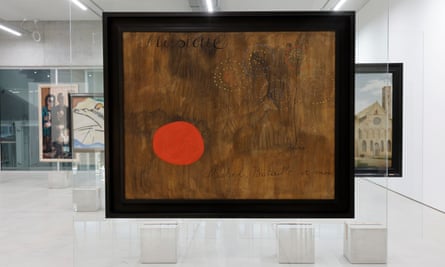
Take a trip to the Depot in Rotterdam and marvel at all the art not on show. Depot Boijmans Van Beuningen bills itself as the world’s first publicly accessible art storage facility and may well be one of the most Instagrammable museums/galleries in the world, too. The building is like a shiny Ikea bowl (intentionally), while inside are more than 150,000 objects arranged in 14 storage compartments. A few masterpieces hang in one space with the backs of the paintings, often signed, also on show. They currently include a Miró, Basquiat, Bruegel and Mondrian. And definitely have lunch in the Restaurant Renilde – delicious.
Adult €20, boijmans.nl
Getting there: Eurostar to Rotterdam from London in about 3 hours and 20 minutes.
Axel Vervoordt gallery, Antwerp
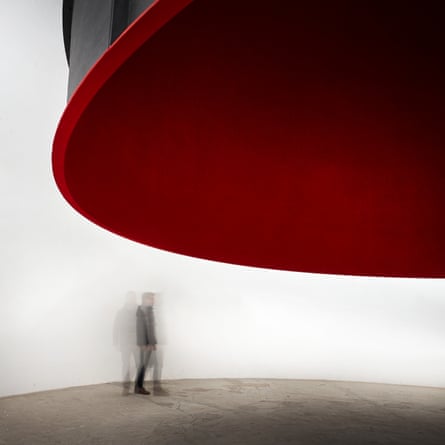
In Wijnegem, on the outskirts of Antwerp, the Axel Vervoordt Gallery is part of a site known as Kanaal. It’s a former distillery that art dealer and interior designer Vervoordt (favoured by Kanye West), has developed into a cultural hub with flats, workspaces and displays of art. Permanent works by Anish Kapoor, James Turrell and Marina Abramović are here, along with temporary exhibitions of artists from around the world, in a disused chapel and a series of former industrial buildings. The Kanaal gallery is only open on a Saturday, 11am-6pm.
Admission free, axel-vervoordt.com
Getting there: Eurostar from London to Brussels (about two hours), then a local train to Antwerp (about 50 minutes).
Musée d’Orsay, Paris
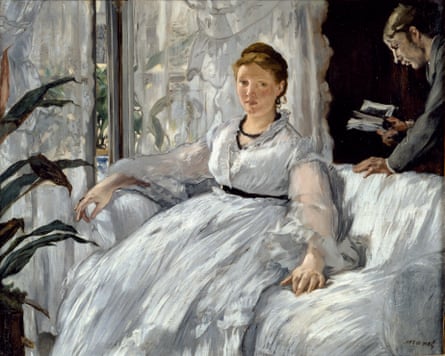
It’s not often you get two great masters for the price of one, but visit the Musée d’Orsay before 23 July and you can explore the relationship between Édouard Manet and Edgar Degas in the 19th century. This is a collaboration between the Musée d’Orsay, the Musée de l’Orangerie and the Metropolitan Museum of Art in New York. The two artists were friends – and competitors – a relationship revealed through the juxtaposition of their work.
Adult €16, musee-orsay.fr
Getting there: Eurostar from London to Paris, about two hours, 20 minutes.
Fresco by Giotto, Padua
Rather than Venice, Florence or Rome this summer, head to the overlooked city of Padua, where you can marvel at Giotto’s fresco in the Scrovegni Chapel. The groundbreaking mural, along with seven other 14th-century frescoes in buildings across the city, was recognised as a Unesco world heritage site in 2021.
cappelladegliscrovegni.it
Getting there: Padua is about two hours by train from Milan; from London travel is via Paris and Milan (fastest time about 10 hours).
Klimt’s The Kiss, Vienna
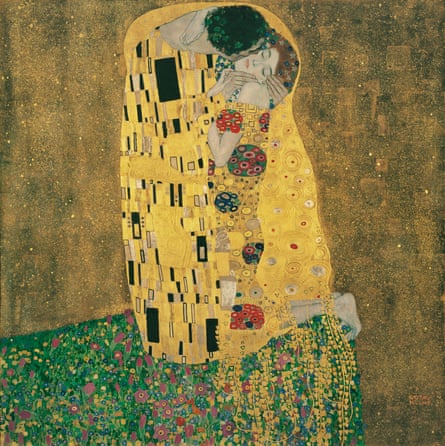
You’ve probably seen it on posters, but why not see the real thing? The Kiss by Gustav Klimt is on permanent display at the Belvedere Museum in Vienna. A perfect excuse to hop on the new Nightjet from Brussels to Vienna. Besides iconic work there are highlights from Viennese modernism in the Upper Belvedere, with special exhibitions at the Lower Belvedere – and contemporary art at Belvedere 21. The gardens are amazing, too.
Upper Belvedere adult €16.70, two-gallery ticket €24, belvedere.at
Getting there: Nightjet from Brussels to Vienna takes just under 14 hours; Eurostar from London to Brussels (about two hours).
Musée Picasso, Antibes
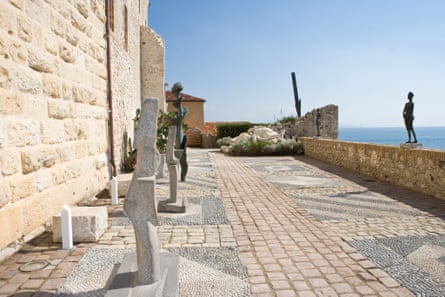
It may feel like you can’t move for Picasso exhibitions this year – the 50th anniversary of the great painter’s death. For something more off-the-beaten track than the big hitters – and the chance to travel by overnight train – go to Antibes, where you can see the exhibition Picasso 1969-1972: the end of the beginning, until 25 June at the Musée Picasso. The museum is in Grimaldi Castle, which was home to the painter’s studio for two months in 1946.
Adult €8, antibes-juanlespins.com/culture/musee-picasso
Getting there: Eurostar from London to Paris, about two hours, 20 minutes, then the overnight train from Paris to Antibes is 11.5 hours.
Maison Hannon, Brussels
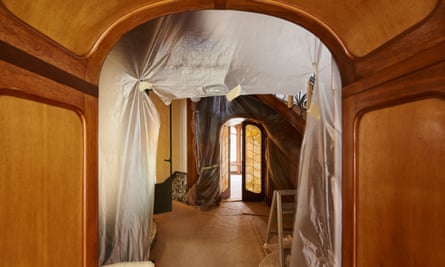
The Maison Hannon is one of the masterpieces of art nouveau – and will open as a museum on 1 June. It was built in 1902 by Jules Brunfaut as the home of Marie Debard and Édouard Hannon, and visitors will be able to enjoy parts of the ornately frescoed restored building and a “Belgian art nouveau” exhibition on the first floor. The opening is thanks to a private-public partnership, which will see further renovations and events from conferences to guided tours. Art Nouveau Brussels 2023 is also running this year, with a programme of workshops, visits and tours. Adult from €12, maisonhannon.be/en
Getting there: Eurostar from London to Brussels takes less than two hours.

Museum Prinsenhof, Delft
If you still can’t get over your disappointment at failing to secure a ticket for the Rijkmuseum’s Vermeer exhibition, then head to the Museum Prinsenhof Delft for the story of the artist’s life told in the exhibition Vermeer’s Delft, until 4 June. At least you can tell your friends you’ve been to see Vermeer. There’s plenty more to explore too, from Delft masters of the 20th century (including Jan Henderikse and Jan Schoonhoven) to exhibitions on William of Orange and Delft Blue, the blue and white porcelain.
Adult €13.50, prinsenhof-delft.nl
Getting there: Direct from London to Rotterdam on Eurostar it’s less than four hours; then it’s a short hop (less than 15 minutes) by train to Delft.
The Ghent altarpiece
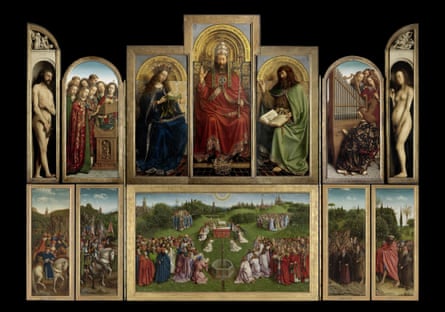
It’s amazing that the Adoration of the Mystic Lamb by the Van Eyck brothers, Hubert and Jan, has survived, but it has and it’s nothing short of breathtaking. Painted in 1432, the polyptych has made it through wars, theft and fire, and is often referred to as the world’s “most stolen artwork”. Now protected behind bullet-proof glass and fully restored, one of the world’s greatest masterpieces is a must-see and is on display in Saint Bavo’s Cathedral visitor centre in Ghent. It’s worth signing up for the augmented reality tour that accompanies it to understand its history of resilience.
Adult €12.50 altarpiece, from €16 altarpiece and AR tour, sintbaafskathedraal.be
Getting there: Eurostar from London to Brussels (about two hours), then a 30-minute local train ride to Ghent.
Source: The Guardian

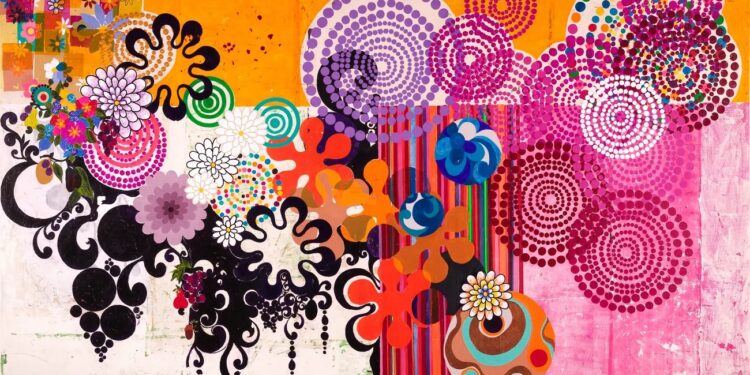
Recent Comments